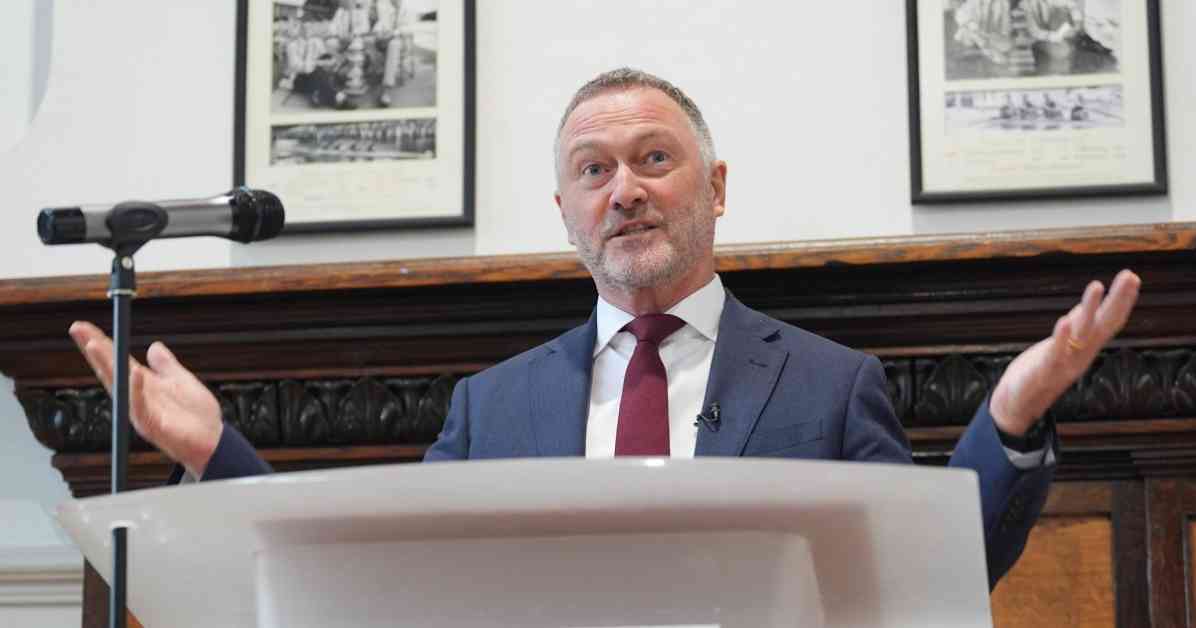Environment Secretary Steve Reed is under scrutiny for accepting gifts from a company linked to water pollution, adding fuel to Labour’s cronyism scandal. Reed, who represents Streatham and Croydon North, attended a Chelsea v Crystal Palace match in December 2023 as a guest of telecoms company Three, owned by CK Hutchison Holdings, a Cayman Islands company listed in Hong Kong. This company also owns 75% of Cheung Kong Infrastructure Holdings, which in turn owns Northumbrian Water, a company guilty of dumping raw sewage into Britain’s waterways, as reported by regulator Ofwat.
An investigation revealed that Northumbrian Water discharged sewage into England’s waterways for a staggering 280,000 hours in 2023, prompting the company to acknowledge the need for significant improvements in its pollution control measures. The hospitality received by Reed, valued at £1,786, came just three months after he assumed the role of shadow environment secretary, raising concerns about potential conflicts of interest.
Despite Reed’s previous condemnation of sewage spillages as a ‘scandal’ and his promises to hold the water industry accountable, critics have questioned the sincerity of his commitments in light of accepting hospitality from a company linked to water pollution. Ed Acteson, co-founder of the anti-sewage group SOS Whitstable, expressed disappointment in Reed’s actions, emphasizing the industry’s prevalence of double standards and conflicts of interest.
The timing of Reed’s acceptance of tickets from a company associated with Northumbrian Water coincides with the government’s decision to invest an additional £88 billion in private water companies, rather than opting for nationalization. This move has sparked further backlash from campaigners, underscoring the need for transparency and accountability in the water industry.
Reed’s acceptance of hospitality from a company with ties to water pollution raises questions about the integrity of his pledges to hold water companies accountable for their actions. The juxtaposition of condemning sewage spillages while benefiting from hospitality from a water company owner has drawn criticism from activists and industry watchdogs alike.
In the midst of a broader controversy surrounding government officials receiving gifts from wealthy donors and private companies, Reed’s actions add to the growing concerns about the influence of corporate interests on policymaking. The issue of accepting donations and freebies from companies with vested interests in environmental issues raises red flags about potential conflicts of interest and calls for greater transparency in political dealings.
Despite the government’s dismissal of the allegations as ‘nonsense,’ the public remains skeptical of Reed’s commitment to holding water companies accountable for pollution incidents. The tough stance taken by Reed against water companies in recent years is overshadowed by his acceptance of hospitality from a company with ties to water pollution, highlighting the need for ethical standards in political conduct.
As the scrutiny over Reed’s actions intensifies, the broader conversation around accountability, transparency, and ethical governance comes to the forefront. The public’s demand for integrity in political leadership underscores the importance of upholding ethical standards and avoiding conflicts of interest in decision-making processes.
For more stories like this, visit our news page.













